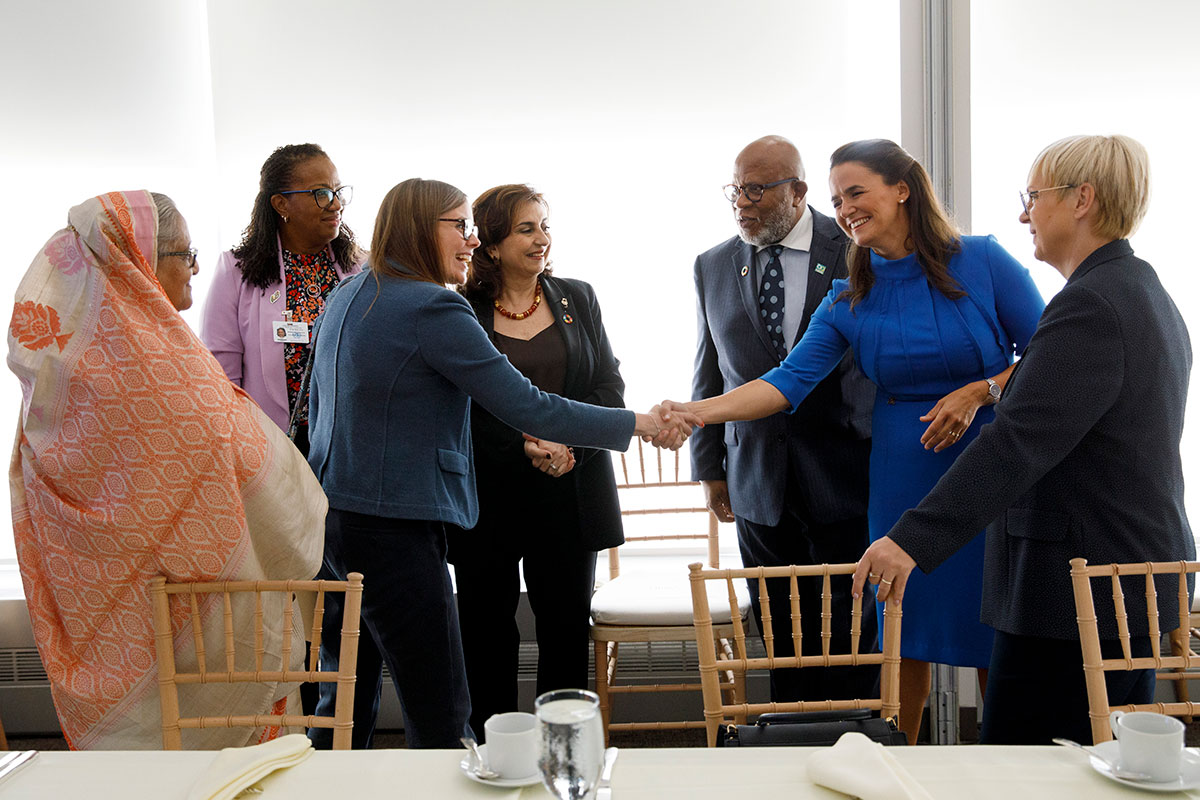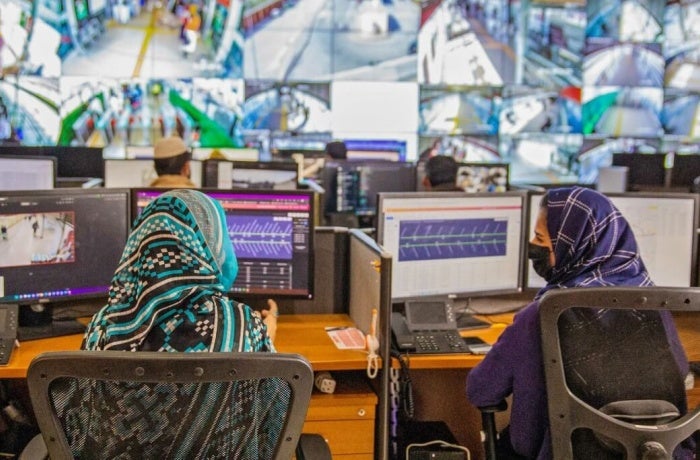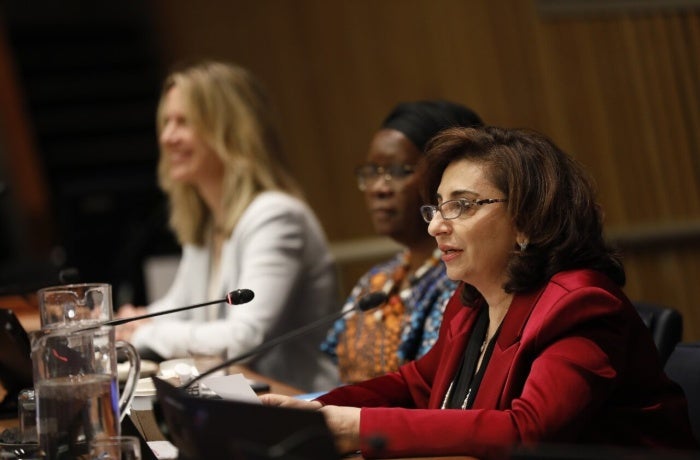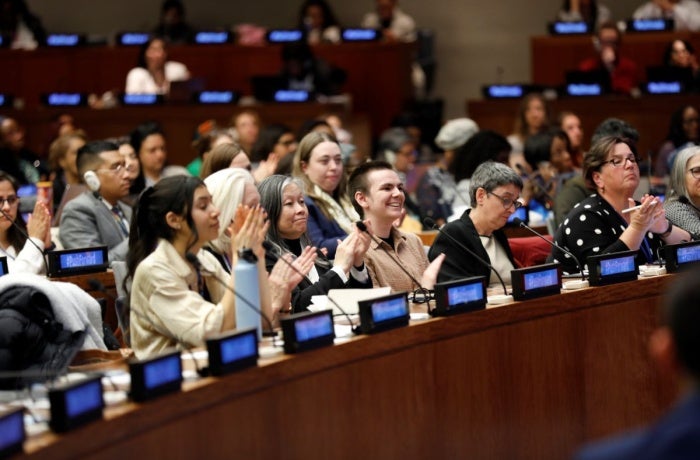‘Gender equality is not an option, but an imperative’ – Women leaders gather at UN summit
As of 15 September 2023, 28 women around the world serve as heads of state or government. On Wednesday, 20 September 2023, a group of those leaders gathered during the UN General Assembly in New York to discuss the challenges faced by women and girls around the world.
The Platform of Women Leaders, established in 2022, is convened during the high-level week of the UN General Assembly each September. This year’s meeting focused on accelerating the implementation of Sustainable Development Goal (SDG) 5, pertaining to gender equality.

A recent report by UN Women and the UN Department of Economic and Social Affairs showed that an additional investment of USD 360 billion per year, globally, would be necessary to completing SDG 5.
“The price tag for SDG 5 is in—we can afford it, and we need to pay it”, said UN Women Executive Director Sima Bahous.
At the panel, moderated by former New Zealand Prime Minister Helen Clark, leaders talked about topics including:
Political and economic representation
“Gender equality is not an option, but an imperative to achieve a fair, just world”, said Bangladesh Prime Minister Sheikh Hasina. She noted that one of her key priorities was increasing women’s representation across government, academia, law enforcement, and other fields by using a combination of affirmative action and professional competence.
Women’s economic empowerment and financial inclusion have also helped them to to play a greater role in decision-making, she said.
“When we adopted the 2030 Agenda, we all committed to achieve gender equality”, she added. “As women leaders, we must leverage our position and mandate to achieve a gender-equal world”.
Slovenia President Nataša Pirc Musar applauded legal mechanisms to promote gender equality, citing European Union directives to boost women’s representation on corporate boards.
She said that ambitious women faced cultural and political hurdles in Slovenia, and hoped that, “being a female president, I want to show a path to the women and girls behind me”.
Online harassment
Silveria E. Jacobs, Prime Minister of Sint Maarten, noted that getting more women to participate in government was a challenge, saying some women did not seek public office because they were concerned about harassment on social media.
Clark agreed, saying that personal attacks against politicians were disproportionately targeted at women, and risked them being “driven out” of politics.
This sentiment was echoed by Mariya Gabriel, Deputy Prime Minister and Minister of Foreign Affairs of Bulgaria, who is slated to become Bulgaria’s first female prime minister in early 2024.
“We should encourage more girls and women in innovation and entrepreneurship and pay more attention to online safety”, she said.
Gabriel also noted that venture capital was disproportionately invested in male-led companies, and said she sought to make a personal effort to diversify those investments.
Changing the culture
“When a woman fails in a position, people say it’s because she’s a woman. When a man fails, no one says it’s because he’s a man”, said Katalin Novák, President of Hungary.
She said that, when she was in the country’s parliament, “I was the one woman at the table. I am telling you one woman is not enough”.
Dina Ercilia Boluarte Zegarra, President of Peru, similarly described the difficulty of overcoming cultural roadblocks, saying, “We are working hard to shift this mentality from male-chauvinism to respect for women”.
“For women, it’s hard to get into politics, and often to join the labor market at all”, she added.
“As a child you were taught women should be seen not heard”, Jacobs said. “And yet I am here”.
“When women and girls are empowered, they become true agents of change”, said Dennis Francis, President of the General Assembly, who co-hosted the panel.
Bahous described the panel as “a clear demonstration of Member States’ commitment to place gender equality at the centre of the work at the United Nations.”
While the world is falling behind on achieving the sustainable development without significantly more funds into gender equality, Bahous said, “gender equality is the investment we need to make”.








